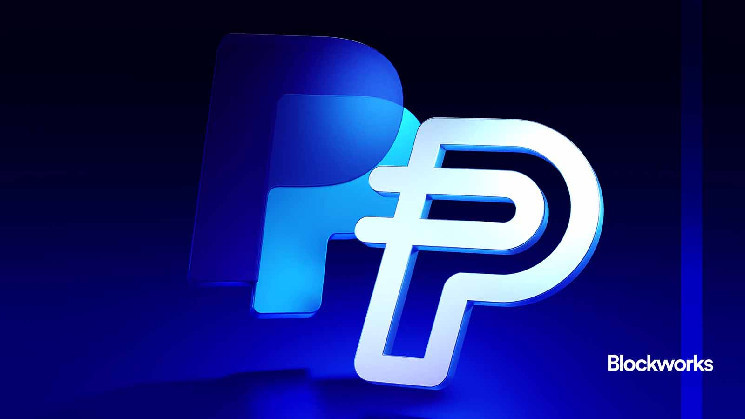Howdy!
Death, taxes, and the Kansas City Chiefs getting extremely lucky at the end of football games. When will it end?
It’s day two of the NFL season and I’m already resigned to my Buffalo Bills bowing out to Patrick Mahomes in the playoffs yet again. At least I have all our newsletter subscribers to keep me company:
Kamino is Solana’s home for liquidity incentives
PayPal’s $PYUSD stablecoin has recently seen rapid growth on Solana. Much of the growth has been driven by Kamino, a newer DeFi platform where the majority of this activity is happening.
Kamino, a borrow-lend protocol on Solana that began gaining real traction in late 2023, onboarded $PYUSD with generous liquidity incentives in early July. Today, some $344 million $PYUSD is held on Kamino, according to onchain data. This equates to 62% of the total supply on Solana.
It’s easy to see why $PYUSD grew so quickly on Kamino — it was offering 18% APY on the stablecoin for a time. This boosted yield wasn’t cheap. $500,000 is being spent weekly on $PYUSD incentives, and this figure was hundreds of thousands of dollars higher a couple weeks ago.
A source with knowledge of the matter told me that these incentives are doled out by Trident Digital, a little-known firm that the stablecoin’s issuer Paxos taps for liquidity boosting services. I could not determine for certain whether the funds incentivizing $PYUSD adoption were ultimately being paid for by PayPal or by the Solana Foundation.
But taking a broader look, $PYUSD is not alone in spending for adoption on Kamino. In fact, eight of Kamino’s 10 highest-volume liquidity vaults have “incentives farms,” which appear to let projects front their tokens and let Kamino disburse them to depositors. Tons of Solana projects have done this: Jito, Marinade, Blaze, and Sanctum all appear to have active liquidity farms. Ethena and Wormhole appear to have spent on liquidity incentives, too.
While all this was going on, Kamino has grown significantly. On Dec. 6, 2023, Kamino had $42 million in total value locked (TVL), according to DeFiLlama. Nine months later, that number is at $1.4 billion, and Kamino looks like it could make a serious run at Jito to become Solana’s largest protocol by TVL.
Some have drawn comparisons between Kamino and the Ethereum borrow-lend protocol Aave, a blue-chip DeFi protocol that’s ranked third in TVL among all protocols with over $11 billion locked. Kamino isn’t the only borrow-lend protocol on Solana — MarginFi and Save (formerly Solend) also come to mind — but its liquidity management vaults tab appears to be setting it apart. There’s also the fact that both other incumbents have had their warts in the past.
Still, it’s an open question as to how sticky Kamino’s TVL can be. Of the $1.4 billion currently held on Kamino, $380 million is in $PYUSD, and the weekly yield boost appears to be slowly scaling down. Kamino’s $148 million in liquidity vaults, many of which receive incentives, are significant, too.
“Kamino lenders are happy lenders,” Kamino’s co-founder wrote on X this week. I’ll be interested to see if liquidity incentives are table stakes for keeping them happy.
— Jack Kubinec
Zero In
India really showed out for Colosseum’s Radar hackathon:

The hackathon, which is going on from now until Oct. 8, has drawn a fair amount of interest from Solana’s community, and as you can see, more than a third of the registrants come from India. Hackathon winners have a chance to join Colosseum’s startup accelerator, which also comes with a seed investment check.
Colosseum’s first hackathon in the spring produced the viral Solana experiment Ore, which we’ve written a fair bit about, so I’ll be rooting for some similarly-interesting new projects to emerge from this hackathon.
— Jack Kubinec
The Pulse
ICYMI — Stories you may have missed this week:
- 0xDeep created the Solana Programs Verified Directory, a public dashboard for trusted and verified Solana programs. It is intended to help users ensure the integrity of their interactions.
- PRISM Explorer launched the first AI-driven data intelligence platform for Solana, allowing users to query the entire Solana ledger back to Epoch 0 with SQL and AI agents.
- Volmex Finance introduced the SVIV Index, Solana’s first implied volatility index, tracking 14-day expected volatility with future updates planned for derivatives trading.
- Jupiter Exchange announced its new ‘Protect your swaps’ feature, intended to safeguard transactions from sandwich attacks by routing swaps directly to Jito Labs validators.
- The GRASS airdrop caused disappointment among some users due to smaller-than-expected token allocations, despite its minimal participation requirements.
- Mercuryo is set to launch its Spend virtual debit card, which promises to let Solana wallet users spend their crypto at over 90M Mastercard merchants.
- Scammers discovered a new method to burn tokens directly from Solana wallets via the Token 2022 standard, adding a new layer of risk for unsuspecting users.
- AggLayer, introduced by Polygon Labs’ CEO, is a cross-chain interoperability layer connecting Solana, Ethereum, and other blockchains to bring “infinite scalability” to Web3.
- Bybit has begun to issue bbSOL, a liquid staking token on Solana that allows users to earn staking rewards while maintaining liquidity and maximizing returns.
— Jeffrey Albus
One Good DM
A message from braunguy, co-founder of Lulo
 blockworks.co
blockworks.co
